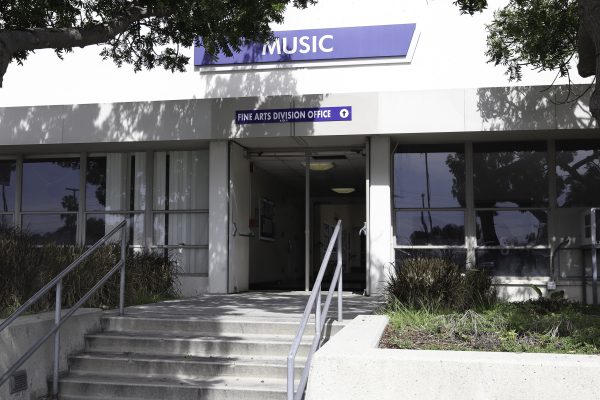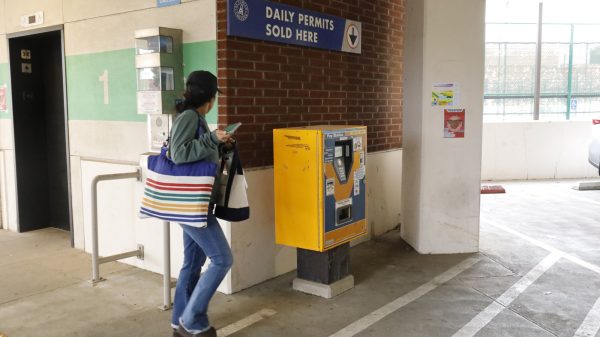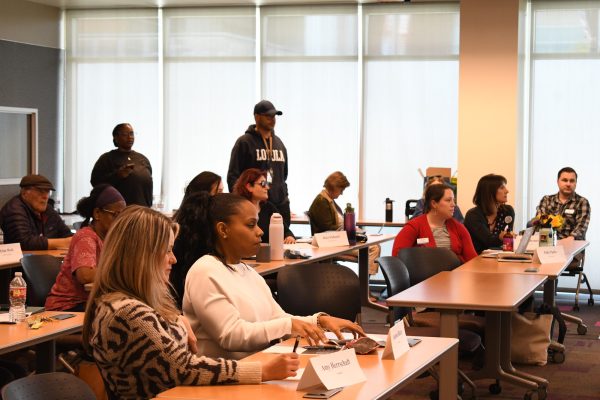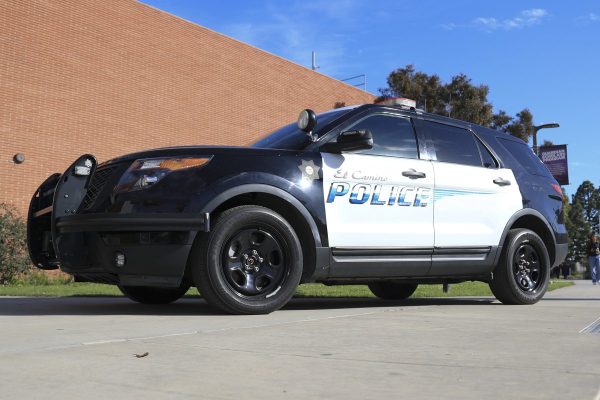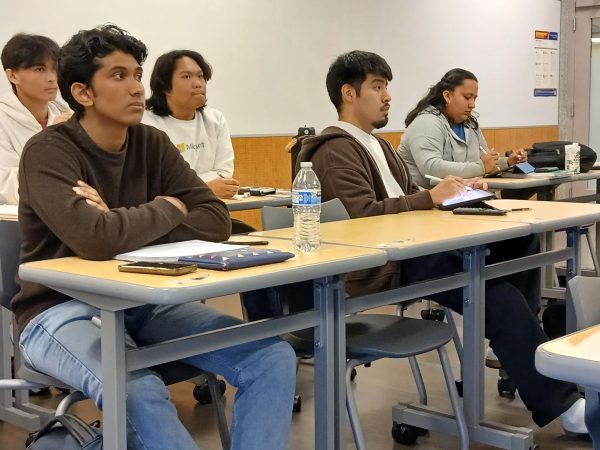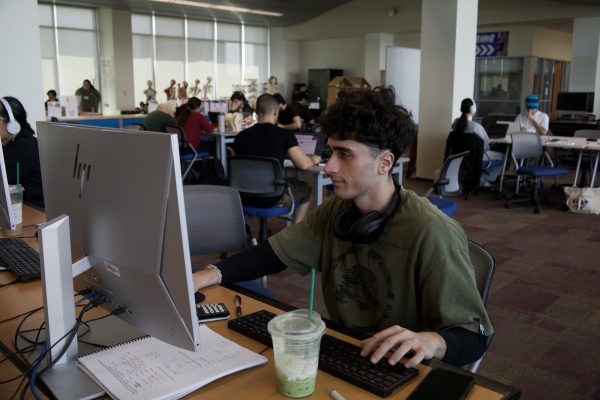Q&A with the El Camino College presidential finalists
Following the announcement of El Camino College’s four presidential finalists, The Union has compiled five questions for the candidates that we believe are important to our readership.
These questions were emailed to all of the candidates, Santanu Bandyopadhyay, David Doré and Stephanie Bulger have provided their responses. Brenda Thames was emailed for this article twice by The Union, once on April 25 and once on April 28. A message was also left with her office on April 29 but we were unable to reach her.
Candidate Bandyopadhyay is 59-years-old, he is currently the interim president at Modesto Junior College. His hobbies include adventure sports such as paragliding and running. He is also currently a finalist for president of Modesto Junior College.
Doré is also 59-years-old, he serves now as president and executive vice chancellor at Pima Community College District. Doré enjoys community service and volunteering, gardening, hiking and fitness.
Bulger is currently vice chancellor, instructional services at the San Diego Community College District. She likes hiking, the arts, travel and reading presidential biographies.
The following questions were provided to all four candidates. All statistics provided in the questions are documented in the California Community College Chancellor’s Office Datamart and reflect data for either spring 2020, fall 2020 or the 2019 to 2020 academic year.
Q: El Camino College (ECC) has a diverse population. Our student body is roughly 52% female, and we have upwards of 20 non-binary students. About 13% of our students are Black, .3% are Native American, 11% are Asian, 3.3% are Filipino, 53% are Hispanic, 3% are of multiple ethnicities and .5% are of Pacific Island descent. Nearly 84% of our students are under 30-years-old, but 16% are 30 and over.
Administration at ECC is roughly 48% caucasian, full-time tenured faculty are 57% caucasian, temporary full-time faculty are about 50% caucasian and classified faculty are about 25% caucasian.
How do you plan to expand the college’s efforts towards representation, diversity and inclusivity, especially for Black and Asian/Pacific Islander students, faculty and staff?
Do you have any plans for your own efforts to hire a faculty that better represents the student body?
A: “As I mentioned during the forum, for faculty hiring, my plan is three-pronged: promote our diverse student body when advertising for new hires; include targeted outreach to media that are read by Black, Asian/Pacific Islander, Latinx, and work on our equivalency process with [the] Academic Senate to ensure we do not eliminate [or] restrict potential faculty members from applying. I will ask for data on applicants, finalists, and selected candidates to measure efficacy of the process,” Bandyopadhyay said.
A: “I would work closely with the Advisory Committee on race and equity to support the five focus areas and build on the anti-racist work that is already underway at the college and collaborate with the [University of Southern California] Center on Race and Equity. In addition, I would establish President’s Advisory Committees specifically for the African American, Asian/Pacific Islander, and Latinx communities. I would also propose to hold a summit on Diversity, Equity, and Inclusion,” Doré said.
A: “Research shows that diverse environments lead to positive student and employee outcomes, including student achievement, employee retention, and an attractive work environment. I am committed to fostering the values of equity, diversity, and inclusion in ECC’s organizational culture, including hiring practices. My commitment involves employing multiple strategies that include reviewing policies, procedures, and practices to ensure they are in alignment with the college’s values across all areas of the college,” Bulger said.
Q: Once the pandemic has come to an end, students and faculty will expect campus to reopen. How do you plan to implement this return safely and how do you plan to ensure that every student will have equitable access to their courses, even once classes are mostly in-person again?
A: “Developing an enrollment management plan with an equity lens to recruit marginalized students with messages that resonate with them will be one of my priorities in first year. I will support the recruitment with ‘high expectation and high support’ that will address barriers to success such as mental health, food [and] shelter insecurity, book costs and living expenses. Engaging communities to support the students and developing open educational resources will be part of my plan,” Bandyopadhyay said.
A: I would plan to work closely with college constituent groups and the COVID-19 Task Force on the implementation of the Campus Reopening Safety Plan which was developed based on best practices for reopening safely. This plan prioritizes the health and safety of the El Camino College Community while continuing efforts to ensure the college is supporting equity and student success. I will also bring extensive experience in this area from my current college district,” Doré said.
A: “While there are several unknowns surrounding the global COVID-19 pandemic, the plan for a safe return to campus will be thoughtfully constructed with input from the college community and guidance provided by county health information. The plan will include student-centered class schedules and support services. ECC is an innovative institution, and this capability will result in continuing equitable access to students,” Bulger said.
Q: ECC students received roughly $98,405,363 in aid during the 2019-2020 academic year due to the California Promise, grants and loans, scholarships and work-study.
How do you plan to keep this funding consistent so that El Camino can continue serving the community, despite a students’ income?
A: “Most of these are one-time funds. I will use these funds to support the current students, build enrollment, develop partnerships, establish centers of excellence for teaching and learning, and increase institutional capacity. With this approach, we will be able to provide equitable support now and build revenue streams for the future to keep the supports when one-time funds run out. I will work with the campus community to prioritize support to students with highest needs,” Bandyopadhyay said.
A: “As President, I will assume a highly visible leadership role in the community and devote the time and energy to build and maintain strong external relationships locally and nationally to advocate for funding for El Camino College students with voters and legislative bodies and work tirelessly to ensure that every resident of the South Bay has access to higher education and a supportive pathway to employment in a living wage job,” Doré said.
A: “While the many sources of state and federal financial aid for college offer nearly half of California Community College students some support for their college education, the need is great for many students, particularly for non-tuition costs. The cost of education for students is an area for assessment of available resources as well as state-level advocacy. Access to information at ECC ensures that students understand their ongoing options for financial support,” Bulger said.
Q: Compared to other colleges in the area, ECC employees are underpaid. Our part-time faculty are only paid for two office hours every semester and our counselor’s contracts are only in effect certain months out of the year, closing those services during semester-breaks.
Do you intend to address this disparity and bring ECC up to par with other colleges in the area, and if so, how?
A: “Salary and benefits are negotiated items. As the lead negotiator for my current District with the faculty union after a rare faculty strike, I am well versed in contract negotiation that is beneficial for the unions, fiscally sound for the institution and satisfies the needs of our students. I will harness the power of technology to increase reach and accessibility during the breaks and evening [and] weekend hours to carry forward the learnings from the pandemic,” Bandyopadhyay said.
A: “I intend to work collaboratively with collective bargaining units. As a fiscal steward, I am committed to ensuring the financial sustainability of the college and aligning expenditures with effective strategies for student access and success. I would ensure that the District budget is developed collaboratively, transparently and in alignment with the core values and mission of the District,” Doré said.
A: “I appreciate that this question raises matters of importance to students, has local context, and presents potential opportunities. To the extent that this is an issue, it would need to be addressed in appropriate forums. In addition, it could involve further exploration regarding the impact on students and possible solutions,” Bulger said.
Q: What is your experience in higher education, and why would it make you a good fit to be president of ECC.
A: “First, my track record in contributing to policy-making in Sacramento and ability to advocate for El Camino at the State Level. Second, my experience in [the] private sector and ability to build strong partnerships including high-tech program development in collaboration with the industry. Third, my expertise in enrollment management. Finally, my ability to bring all constituencies together and lead them to a common vision, as demonstrated by my success after the rare faculty strike at YCCD over negotiations,” Bandyopadhyay said.
A: “I began my career in 1985 as a high school teacher and became a higher education faculty member in 1992. I served community college students for 15 years as a tenured faculty member before taking on progressively responsible administrative roles. Having spent my career in highly diverse community colleges, I am a good fit because I am committed to fostering a culture of inclusion where every student feels valued and is supported to reach their potential,” Doré said.
A: “ECC’s vision is, be the leading college of equity and innovation. Throughout my 18 years in community college leadership in large, diverse urban suburban areas, I have demonstrated my commitment consistently to expanding equity and inclusiveness, and, in a shared governance and collegial environment, being a visionary leader for developing innovations that support student access and success. These attributes make me uniquely suited to lead ECC as Superintendent/President in its next phase of excellence,” Bulger said.


